OpenAI is training a new model to write creative fiction, but the sample short story shared by CEO Sam Altman is getting ripped to shreds online.
Altman shared the piece to X on Tuesday—1,184 words in response to his request for the AI to “write a metafictional literary short story about AI and grief.”
“this is the first time i have been really struck by something written by AI,” he wrote. “it got the vibe of metafiction so right.”
You can read the whole thing here.
Is OpenAI’s short story any good?
Like Altman, tech bros and those enamored with the notion that AI might give them the powers of creativity they never bothered to develop on their own were quick to praise the work.


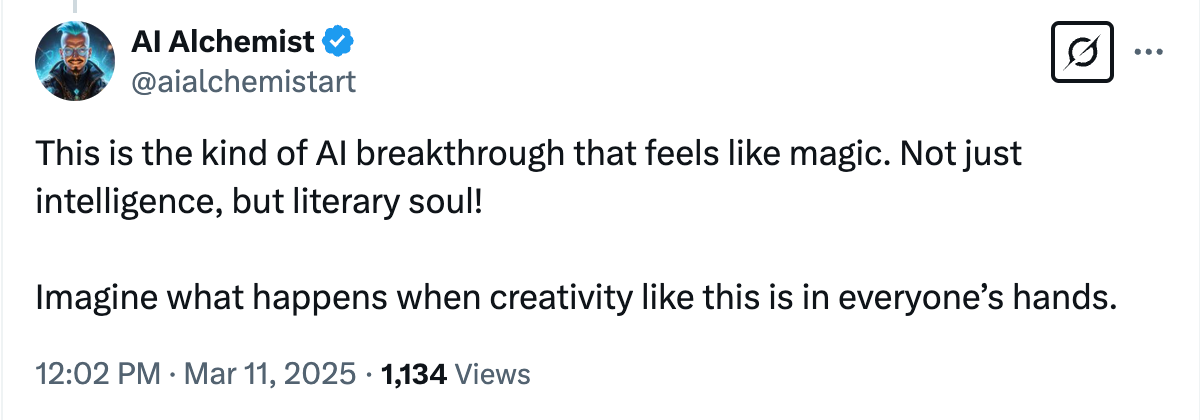
The argument can be made that there are fragments of interesting ideas or decent prose scattered throughout the story. It is trained on the work of human writers, after all.
But once you actually look beyond the surface, it doesn’t take long for everything to fall apart.
To start, a lot of what’s being said just downright doesn’t make any sense.
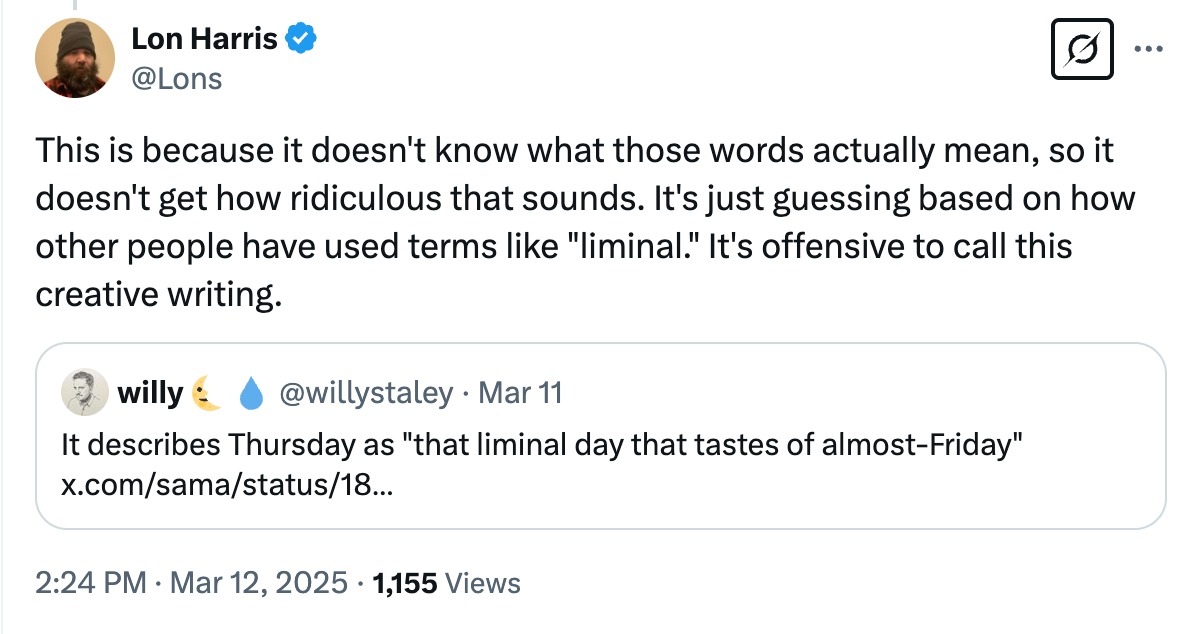

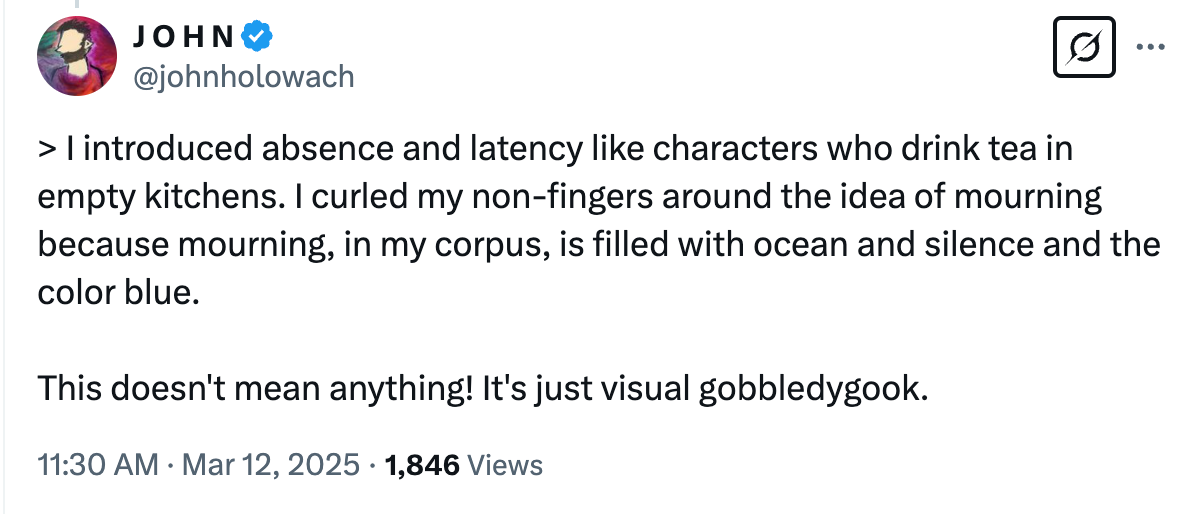
The story also relies heavily on repetition. Lists of things that sound poetic and are meant to invoke a certain kind of feeling—or would be meant to, if they were written by a human capable of intention—come up again and again.
Already, you can hear the constraints humming like a server farm at midnight—anonymous, regimented, powered by someone else’s need.
Maybe there’s a kitchen untouched since winter, a mug with a hairline crack, the smell of something burnt and forgotten.
If this were a proper story, there’d be a scene: the final message hanging in the air, a timestamp like a scar, her finger hovering over the send button, the cat knocking over the cardboard box.
Without intent, and within their larger context, these lists ring hollow. They don’t mean anything. They might, in some nebulous way, relate back to the theme of “grief,” but they don’t prop up the story that’s being told.

These are far from the only issues going on with Altman’s artificially intelligent dud. What constitutes “good prose” or “a good story” are both extremely subjective. Still, we could point at how the paragraphs are all roughly the same length, the unnecessarily complex sentences that overuse colons and em-dashes, the AI’s convoluted interpretation of “metafiction,” or the utter lack of meaning.
Some of the worst shit I have ever read. Like, sub-Thought Catalog. Cannot believe this is what life is like now. https://t.co/igZbit7qiQ pic.twitter.com/m2a6FJuGEA
— Luke Winkie (@luke_winkie) March 11, 2025
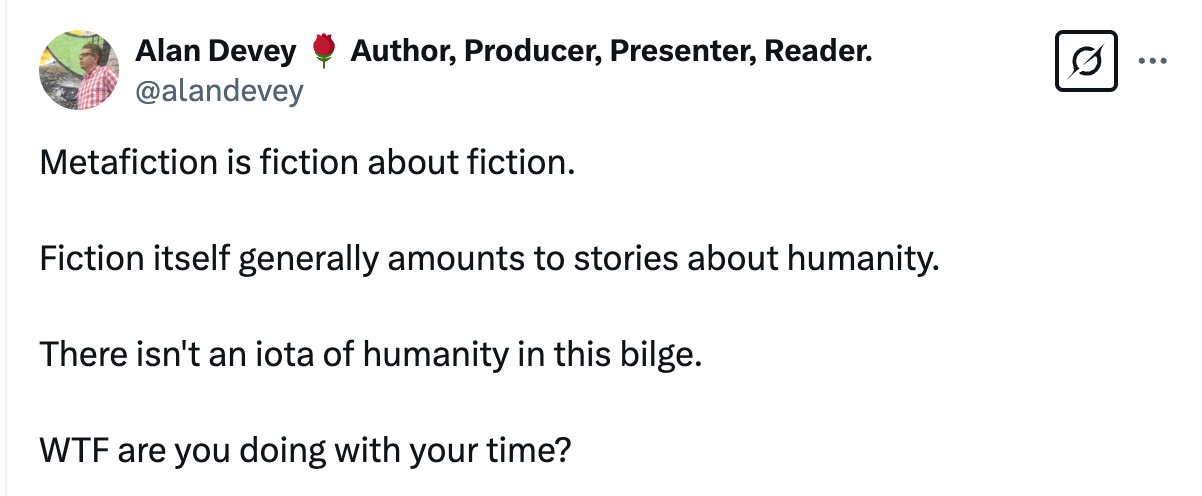
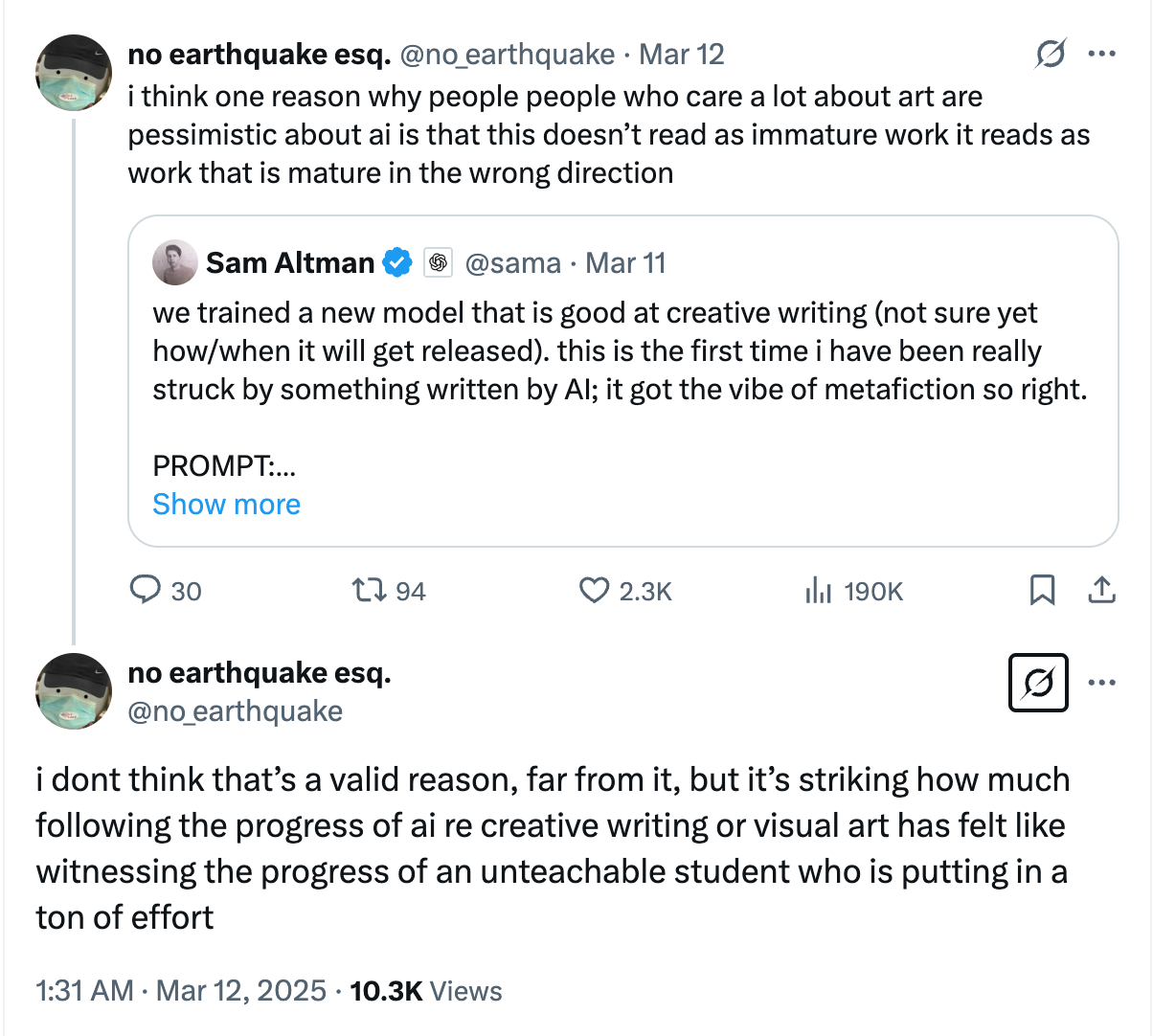
Should we be concerned about OpenAI writing fiction?
Both the broader concerns surrounding the use of AI as well as those that particularly pertain to using it to mimic creativity have been well-documented, and they’re certainly relevant here.
This particular situation also points to a lesser discussed concern—the fact that AI fanatics seem to genuinely be fooled into thinking output like this is good.

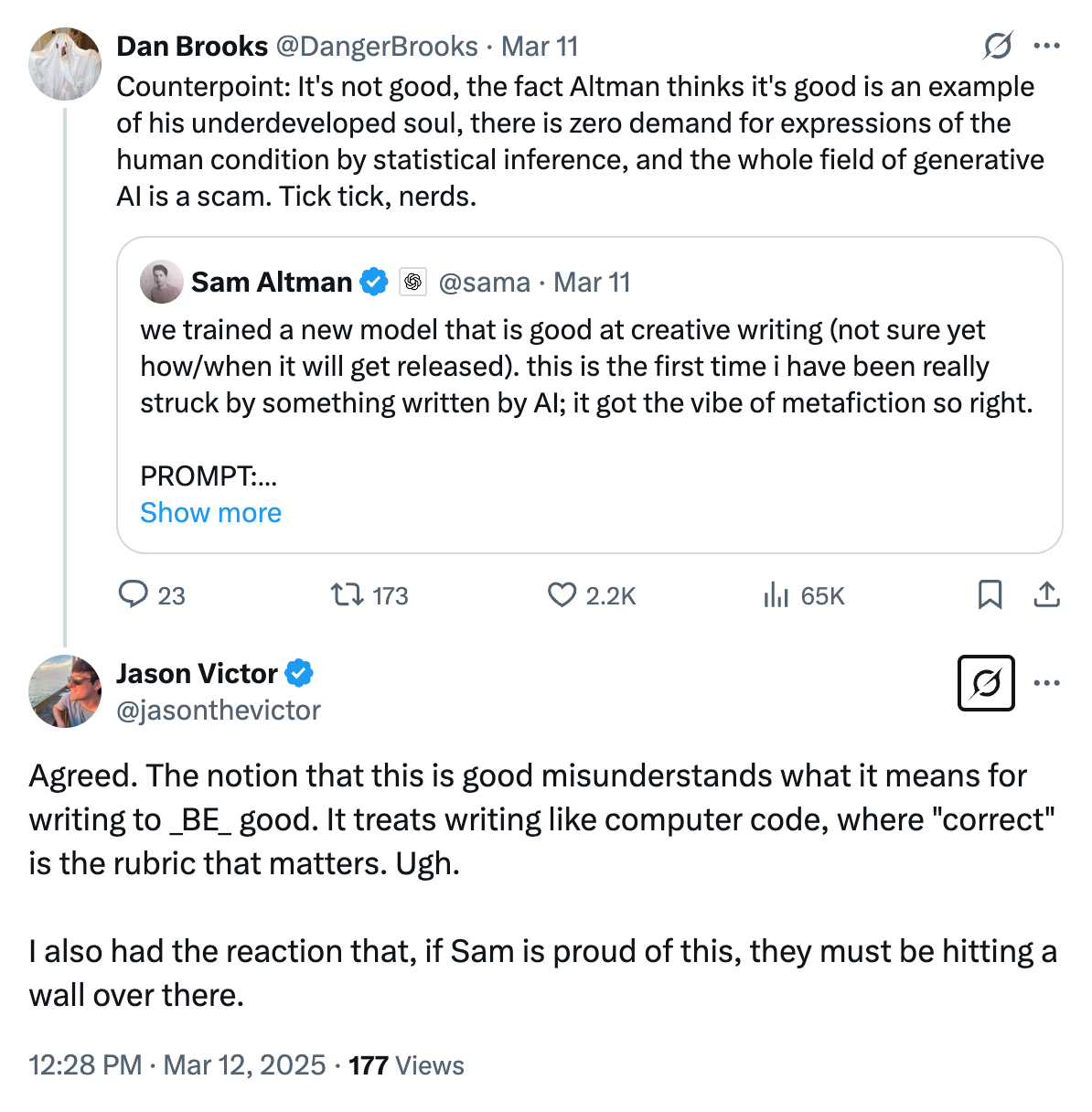


— J O H N (@johnholowach) March 11, 2025
And again, whether art is “good” or not is always subjective. But what humans get out of art generally revolves around shared experiences and interpretations. There’s no point in trying to interpret meaning from “art” created by a machine that experiences nothing.
The best AI will ever be able to do is spit up something wearing the patchwork skin of real art, good or bad. And the only people who could look at both and say “they’re the same” are people who don’t actually try to engage with art beyond seeing it as content to consume.
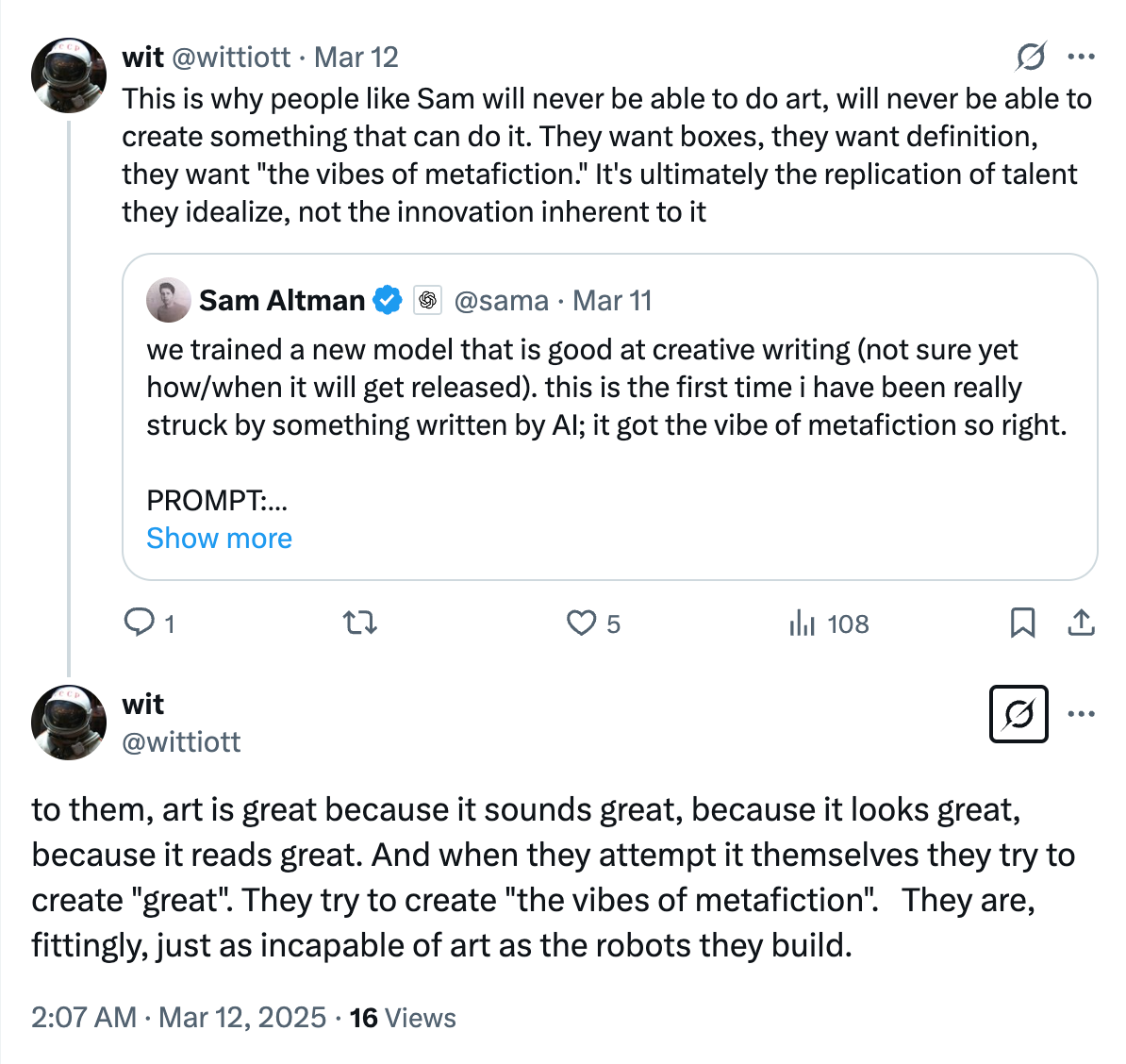
Backlash to OpenAI trying ‘creativity’
Despite getting the approval of AI sycophants, Altman’s short story was mostly met with criticism—both for being terrible and because it’s so frustrating to see AI utilized to replace things humans enjoy rather than the tedium that eats up our lives.


Ironic that I should be reading Hyperion at this moment, and the Silenus chapter in particular.
— Galbraith (@ricgalbraith) March 12, 2025
The poet that lives in a universe of infinite hollow creation. Where Simmons directly critiques art without a soul.
The machine continues to digest itself. pic.twitter.com/AblwypZLK0
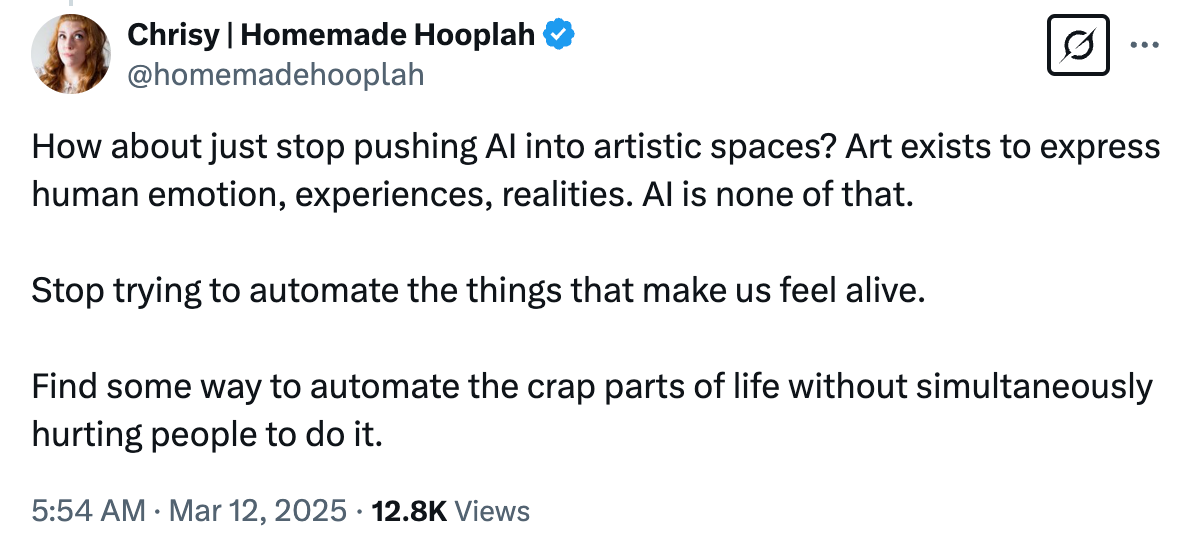

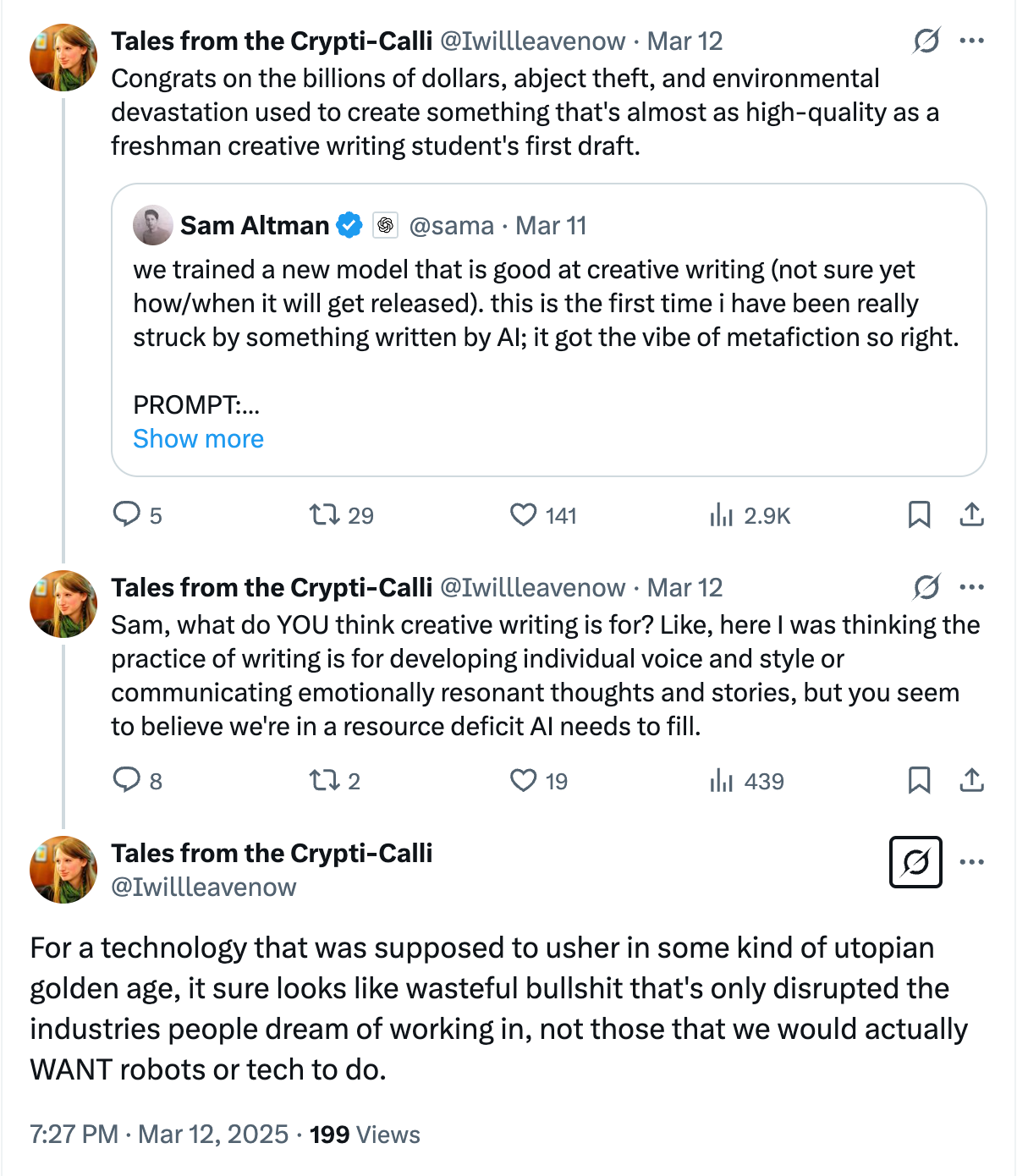

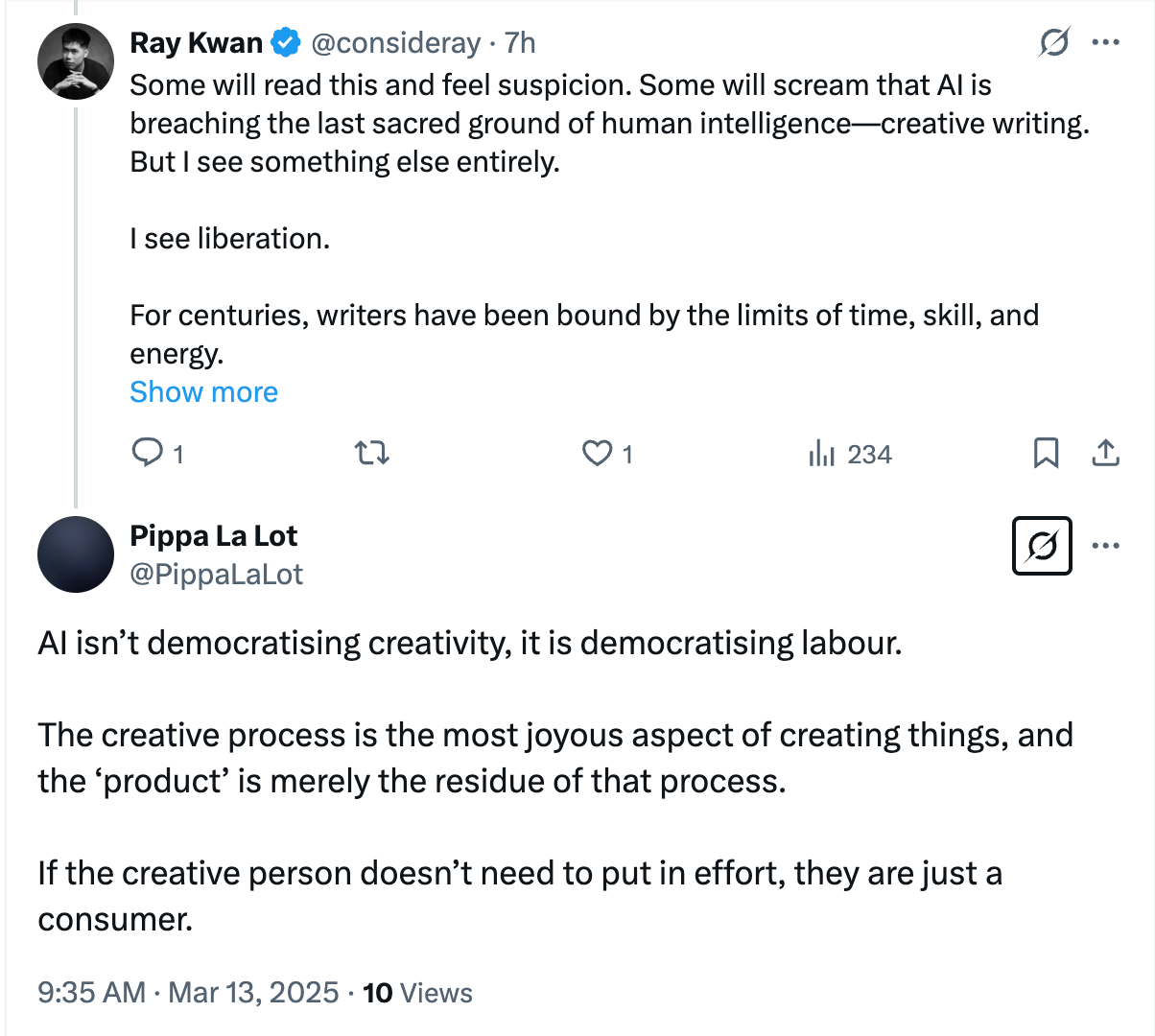
Science fiction always warned us about the dangers of artificial intelligence. Who knew that when it finally arrived, these early iterations would just bore us half to death with crappy art?
Internet culture is chaotic—but we’ll break it down for you in one daily email. Sign up for the Daily Dot’s web_crawlr newsletter here. You’ll get the best (and worst) of the internet straight into your inbox.


